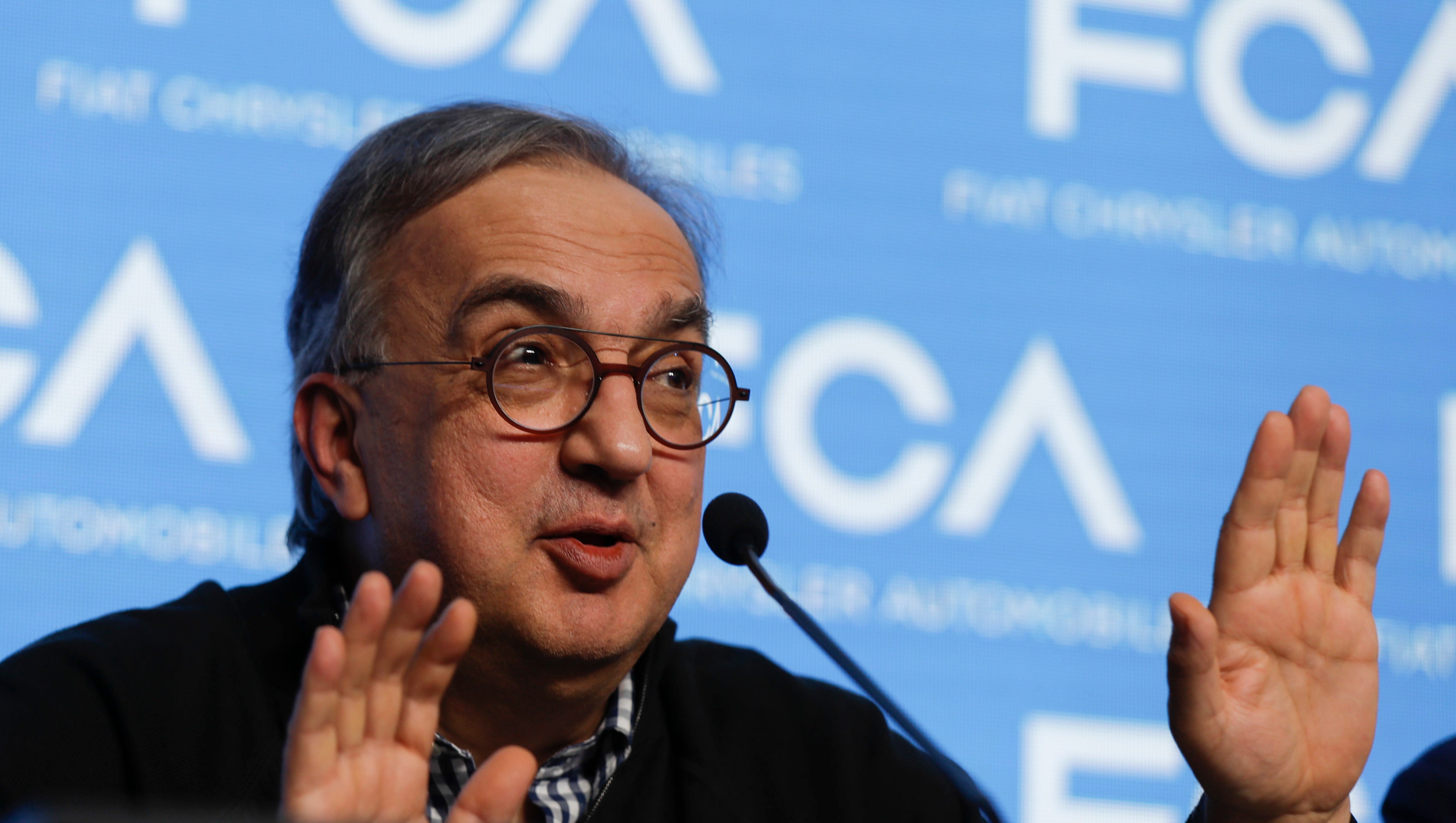Fiat Chrysler lays a path for Auto 2.0

Balocco, Italy – Fiat Chrysler Automobiles NV's latest five-year plan is its first road map to electrification and mobility after years of resisting the Auto 2.0 hype.
The Italian-American automaker said Friday it is investing $10.5 billion (9 billion euros) into electrification through 2022 to add electrified options to more than 30 models across four brands. Unlike Detroit rivals General Motors Co. and Ford Motor Co., FCA isn’t pushing toward any kind of environmental goal.
Instead, FCA’s electrification plan is regulation-oriented, with each region getting an electrified mix based on specific emission standards.
"There is a cultural and regulatory change," CEO Sergio Marchionne said at FCA's Balocco proving grounds Friday. "The automotive sector is widely regarded as the chief source of carbon emissions and, in turn, contributor to climate change."
It's a targeted attack, with each of FCA's global markets getting a mix of gas-powered, hybrid and battery-electric cars that matches regulatory requirements. Almost every market is still dominated by non-electric vehicles – including China, where FCA's propulsion mix is almost identical to what it proposes for the United States.
In China, where FCA lags its competitors in market share, the automaker is also going for a luxury play. Maserati's new battery-electric offensive, designed to battle Tesla, positions the brand well for the Chinese market. Alfa Romeo is also leaning into China with a plan to introduce two new sedans – though they won't be electrified – to boost Alfa Romeo's global market coverage to 71 percent from the 46 percent where it sits now.
The Chrysler Pacifica plug-in hybrid that debuted in 2016 is a model for future implementation of electrification for Jeep, Ram, Maserati and Fiat.
Fiat will be a key piece of electrification in the European market, where the automaker plans to phase out diesels as governments weigh outright bans.
The commitment to electrification, with an emphasis on vehicle performance benefits for customers, comes nearly five months after Marchionne appeared to take a hard pass on the EV market.
“I don’t know of a (business) that is making money selling electric vehicles unless you are selling them at the very, very high end of the spectrum,” Marchionne said at a North American International Auto Show press conference in January. “So making an announcement at the Detroit auto show that we’re going to have X-number of vehicles that are electrified in the future ... is that a wise economic thing to say? The answer is probably ‘no.’”
But the performance-based approach to electric vehicles that FCA took Friday may be its strategy for convincing buyers to switch.
According to Stephanie Brinley, an automotive analyst with IHS Markit who attended Friday's rollout, "This approach ... has potential to be a game-changer relative to consumer demand, specifically for the various hybridization levels. If the hybrid application makes your car do what you want it to do better than the non-hybrid, it is a stronger incentive to choose the option."
This is Marchionne's final master plan, a tradition he started 14 years ago at the proving grounds. The usually unsentimental CEO decided to present his blueprint for the company's future on the anniversary of his tenure as chief executive. He plans to retire next April.
"You will see that we concentrate our brand messages today on Jeep, Ram, Maserati and Alfa Romeo," Marchionne said in opening remarks. "These brands comprise the most significant portion of our revenues and our earnings."
On the product horizon, Jeep is promising 14 electrified vehicles in the next five years, including four battery-electric options. By 2021, every Jeep nameplate will have an electrification option.
Jeep is also going to add mobility options starting next year, with a planned "borrowing" experiment in the Northeast that would allow customers to "use coins to borrow products." Jeep will also be part of an FCA subscription service launching next year.
Ram planners hope a new performance pickup called the TRX – and a yet-unnamed new midsize pickup to compete against the Chevrolet Colorado and Ford Ranger – will boost annual global sales for Ram to 1 million by 2022.
Marchionne said the midsize pickup's main market will not be the U.S., as pickups that size are more popular in global markets. The Ram TRX, a tricked-out off-road Ram 1500 variation which debuted as a concept truck in 2016, is expected to hit the market by 2022 and compete directly with Ford's pricey Raptor.
Maserati has Tesla in its sights with a bold electrification plan called Maserati Blue. This will bring electrification options for the new Quattroporte and Levante, and usher in a new electrified car called the Alfieri.
The automaker reinforced its Thursday announcement that it is working toward an all-new autonomous vehicle with Alphabet Inc.'s Waymo. FCA – which has foregone its own self-driving vehicle development under Marchionne – has tied its Chrysler brand to Waymo, a leader in the autonomous space.
The two companies said Thursday they were upping their partnership. Waymo will add 62,000 Pacifica minivans to its fleet late this year. Waymo and Chrysler also are looking at possible uses of Waymo’s technology in an FCA-manufactured vehicle for retail customers.
In his opening remarks, Marchionne wore a tie, a signal he had promised to send if he expected FCA to meet its goal of eliminating its net industrial debt.
That debt, which excludes financial-services operations, dropped by 45 percent in the first quarter of 2018 to 1.31 billion euros ($1.6 billion). And it represents a major step toward putting Chrysler's 2009 bankruptcy in the rear-view mirror.
nnaughton@detroitnews.com